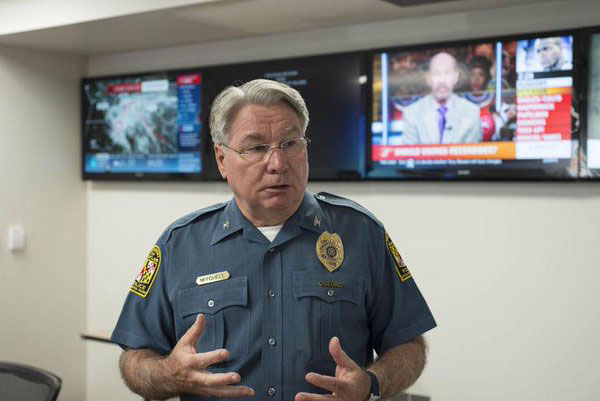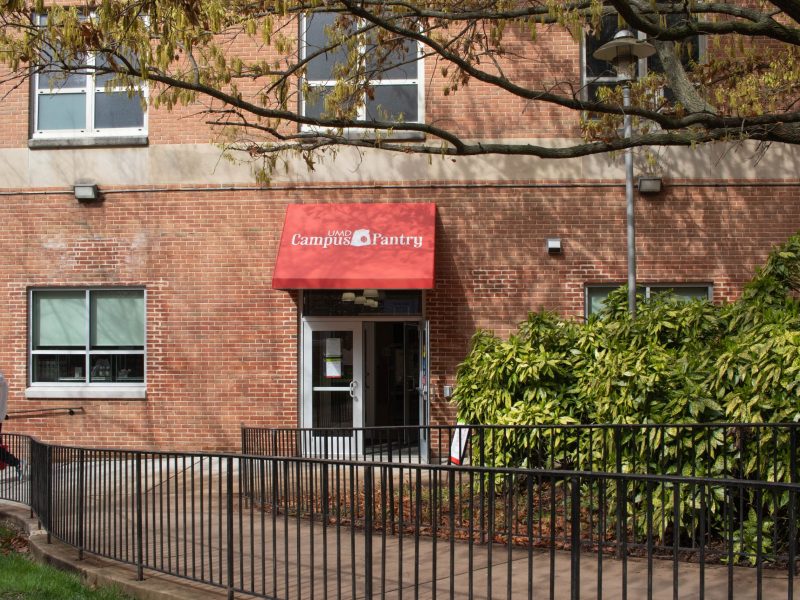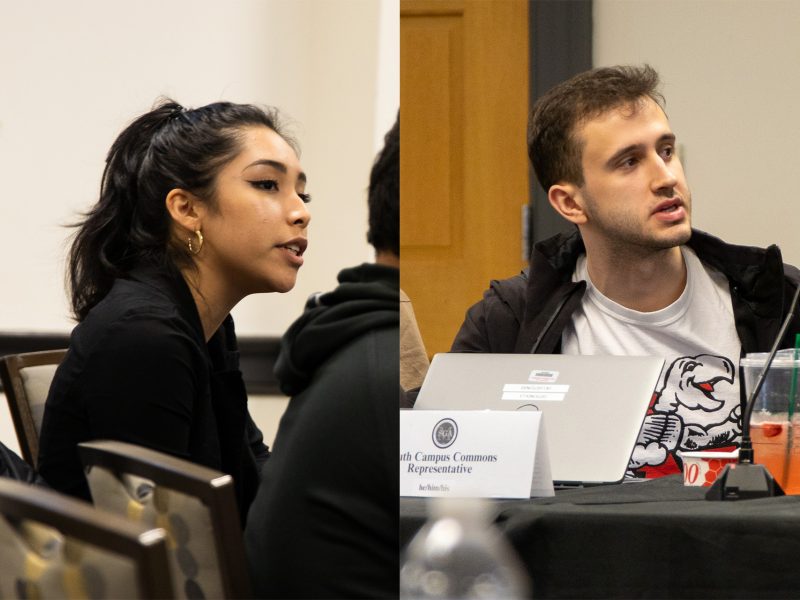More than nine months after University of Maryland Police used pepper spray to break up a graduation party of predominantly black students, the department has prohibited the use of pepper spray in nonviolent situations and implemented the diversity training University Police Chief David Mitchell ordered in July.
On May 21, police responded to what turned out to be a false report of a fight at a party in a Courtyards apartment. Officers deployed pepper spray twice to disperse partygoers, sparking allegations that their conduct was racially biased. Students posted cell phone videos of the incident on social media and expressed outrage at how police handled the situation.
[Read more: UMD Police finds pepper spray use at mostly black graduation party was justified, but suspends officer]
After a five-week investigation into the incident, Mitchell suspended an officer without pay for two weeks for “conduct unbecoming an officer” and ordered the department to undergo training in cultural diversity and implicit bias.
Mitchell said in July he was “terribly embarrassed and humiliated” by the actions of the officers.
“The bottom line is it never should have gotten to this point,” he said.
The department revised its policy to ban the use of pepper spray in “passive civil demonstrations,” such as nonviolent rallies, protests, parties and other gatherings. Under the new policy, officers cannot use pepper spray to disperse a crowd without a supervisor’s orders. If an officer were to deploy pepper spray improperly, the department would conduct an internal investigation, said University Police spokeswoman Sgt. Rosanne Hoaas.
[Read more: UMD Police say pepper spray investigation’s publicity doesn’t set precedent]
University Police are also reviewing their mandatory, immediate decontamination and first aid responsibilities to ensure officers know how to respond when they deploy pepper spray. Mitchell said he wants these changes to emphasize de-escalation techniques over an “escalation of force.”
“We’ve made it really clear that de-escalation is preferable,” Mitchell said. “Force begins when we arrive on the scene with our mere presence. When you have an essentially compliant situation, you want to use your verbal skills and techniques to resolve whatever differences there may be.”
Officers also began a Fair and Impartial Policing course in mid-January that aims to identify implicit or “hidden” bias and help people recognize situations in which bias subconsciously affects their decisions. Lorie Fridell, former research director at the Police Executive Research Forum, worked with social psychologists that study human biases to develop the training.
“Over the past decade, police personnel, researchers, community leaders and other stakeholders have engaged in a national discussion about policing and bias; biases based on race and ethnicity have received the most attention,” Fridell said. “Much of the national discussion, however, has been based on outdated notions of how bias manifests in our society.”
The training consisted of videos on the psychology of implicit bias, activities and discussions of personal experiences with bias in policing.
Mitchell said the training was “eye-opening in the sense that we are all a product of our experiences.”
“Because of those experiences, sometimes we as humans are predisposed to lean a certain way,” he said. “That’s critically important for us to know in our profession so that we eliminate bias to the extent that we ever can, which is difficult but possible.”
For police officers, bias is not always a bad thing, Mitchell said. Assumptions may save an officer from fatal danger, so “sometimes it’s good when a red flag pops up,” he said.
But Mitchell added he hopes the training will make officers more aware of hidden bias incidents to prevent inappropriate conduct whenever possible.
Patrol officers who work in the field and have the most day-to-day interaction completed the training first, said Capt. Joanne Ardovini, who organized and planned the course for the department. The department held the sessions during the university’s winter break so the training could take place while there was a smaller campus population without creating a shortage of patrolling officers.
Mitchell, University Police chief of staff David Lloyd, commanders, captains and majors completed a training for supervisors March 2.
“We got all but three officers through that training,” Ardovini said. “Not having three gave us probably about a 98 percent attendance rate, which I think is pretty phenomenal since we still had to have officers working the street and taking calls.”
Representatives from the department will complete a Train the Trainer program in the next several weeks. Fair and Impartial Policing instructors will teach department officers how to implement the training on their own in the future, Ardovini said.
“Anyone that gets hired by us moving forward will have this training before they start working,” she said.
With the implementation of new training and an updated use of force policy, Mitchell said he is hopeful the department is on the right track.
“If we continue to hire qualified people, we continue our path of diversity in our department, we give them, in our own police academy, the best training we can provide and the best supervision … our problems are going to be few.”



